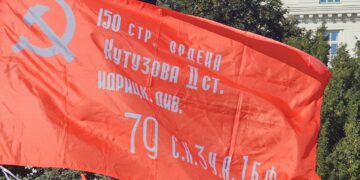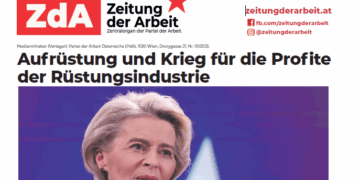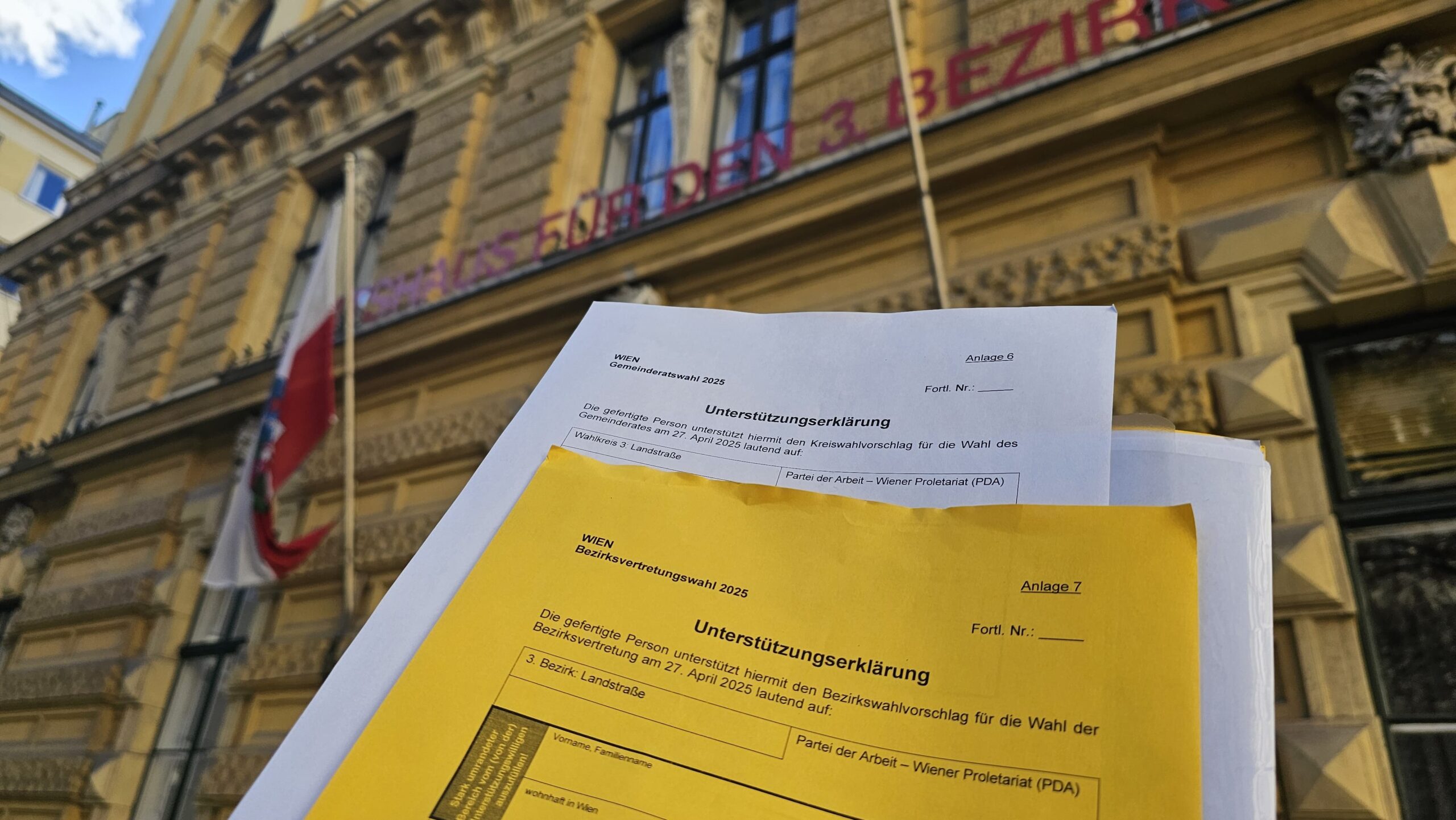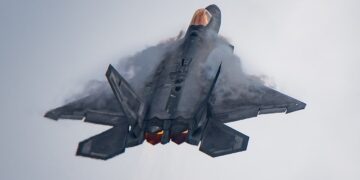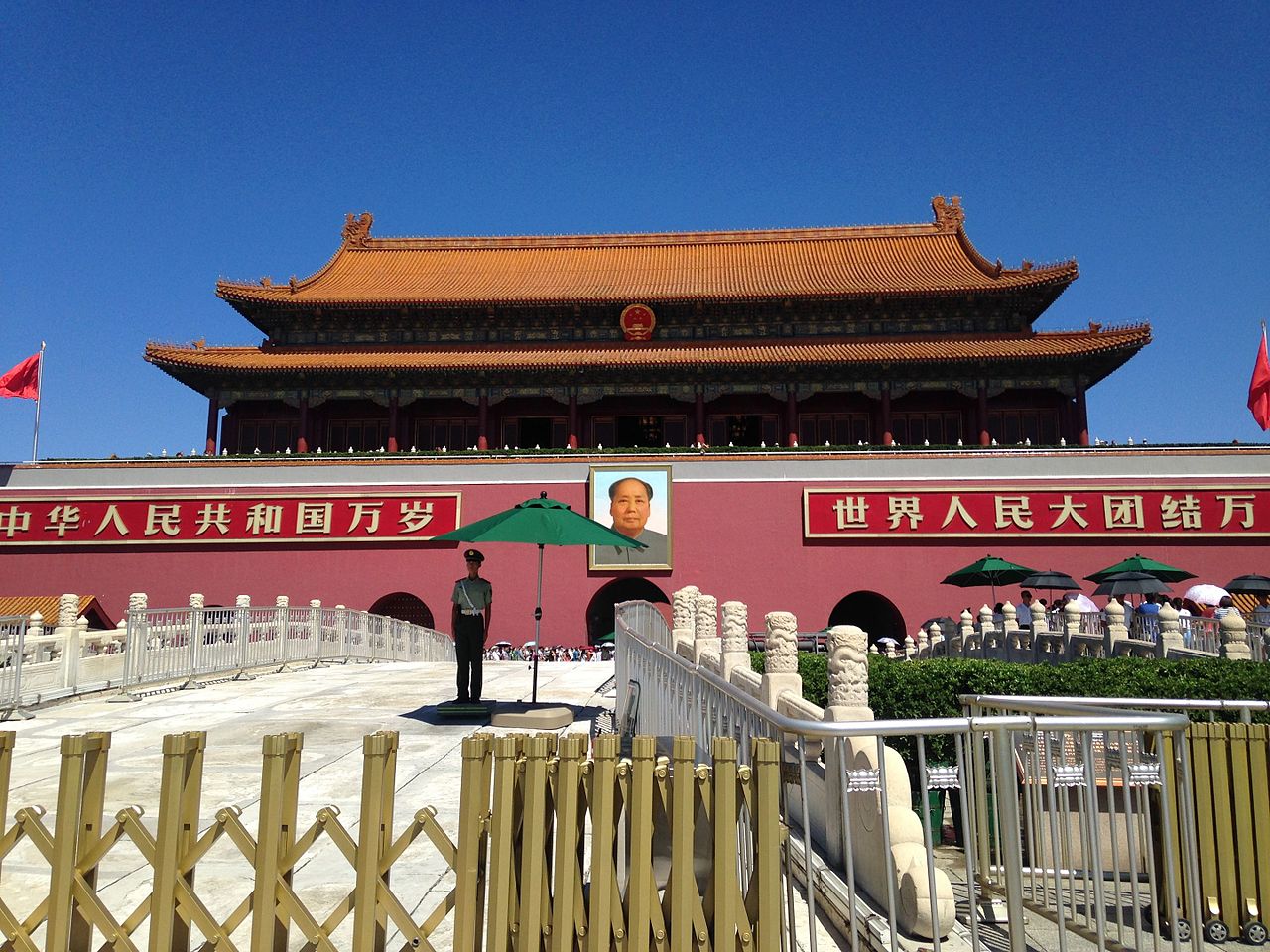Contribution of the Party of Labour of Austria to the 37th Prague Theoretical-political Conference, “On the anti-communist disinformations about the causes, course and results of World War II; the danger of a new rise of fascism”, Prague, 18 April 2015
1. The Second World War was a result of the uneven development of the imperialist powers, which had already exploded in the First World War. Afterwards, Germany, Italy and Japan were striving against Britain, France and the US for a redivision of the world. Under imperialism such a redivision is only possible by force. The direct military great power conflict thus developed directly out of the laws of the imperialist system, in which monopoly capitalism competes for the spheres of influence, raw materials, market share, investment opportunities and cheap labour.
2. The main impulse for war came from Germany, which aimed through dominance in Europe also to become a world and colonial great power. As a first step, before the start of the war, Austria was occupied and annexed and Czechoslovakia was broken up. The attempt by Britain and France to satisfy Germany with these concessions was doomed to failure.
3. A particular feature of this imperialist war lay the fact that Germany and its allies were organised as fascist states. Fascism in power is the open terrorist dictatorship of the most reactionary and imperialist sections of monopoly and finance capital. The assertion of fascism was thus a logical programmatic point of the German corporations and banks to go on an all-out offensive. Inside Germany, the elimination of the Communist Party, the trade unions and social democracy was the precondition for driving forward rearmament, militarisation and war preparations without any hindrance. In this sense, fascism was (and is) the optimum form of the organisation of state monopoly capital.
4. From the beginning, however, Fascism – as the spearhead of imperialism – also had a second international task and object: the destruction of the USSR as a state policy reality of the revolutionary power of the working class. German fascism completely shared this interest with its imperialist competitors, Britain, France and the USA – they were all deadly enemies of socialism. Only the course of the war ultimately forced the western Allies to join an anti-Hitler coalition with the USSR.
5. The communists were the most determined opponents of war and fascism. On the one hand, internationally the Red Army bore the main burden of the liberation of Europe from fascism, on the other hand in most countries communists formed the main pillars of the resistance. In Austria too it was above all a service of the members of the Communist Party and of the communist youth organisation of the time to have led the anti-fascist resistance and the national liberation struggle with all their strength.
6. The superiority of the USSR over Germany was decisive for the victory of the antifascist camp. In the years before the start of the war, through forced socialist industrialisation, the strategic placing of factories needed for war production and through a socialist education system, the leadership of the USSR was able to prepare the country and the people for the resistance struggle in good time. Thus – in alliance with partisan units and the civilian population – the Red Army was not only able to drive the fascist aggressors out of its own country again, but also to pursue them back to Berlin and to subject them to a crushing defeat.
7. In some countries of central and eastern Europe, the liberation from fascism passed over into revolutionary upheavals, which were naturally favoured by the presence of the Red Army. People’s democratic and socialist states were created, which in the following decades were able to escape from capitalism and imperialism. The Western Allies thus rapidly changed their position soon after the end of the war: anti-communism again became their main concern, while they reconciled themselves with fascism. West Germany was rearmed and with NATO a collective instrument of North American and Western European imperialism in the struggle against socialism was founded. Socialism was also fought ideologically and brazenly equated with fascism. In 1989/90, the objective of the destruction of the socialist states was successful, for which, however, internal problems were also responsible. Since then, in a range of former socialist states anti-communist laws have been passed which serve to falsify the historical truth and to illegalise and criminalise communist and socialist organisations, symbols and activities.
8. However, neither in 1945 nor in 1989/90 was the epoch of fascism over. Currently, fascist forces are in the government in Ukraine, in Greece in the national parliament and in Germany in regional parliaments. But the renewed threat of fascism does not just come “from below” through the possible rise of fascist parties and organisations, but also – and perhaps even to a greater extent – “from above”, through a creeping fascisisation of the state apparatus by the bourgeois parties in power, through a putsch by conservative-reactionary forces in alliance with the military, through the installation of a fascist régime in dependent countries by the principal imperialist powers.
9. The Ukrainian government, heaved into power in Kiev by US and EU imperialism and supported by fascist forces, not only honours the old Nazi collaborators as “heroes” and employs fascist hordes against the population of the people’s republics of Lugansk and Donetsk, but it is also attempting to rewrite the history of the Second World War: the Red Army is now supposed to have been the actual aggressor, having attacked and occupied both Ukraine and Germany. The so-called “democratic” West reacts with silence. It has a similar response to the annual march by former Latvian SS members and their supporters in Riga.
10. The period of imperialist wars and great-power conflicts is likewise by no means over. Currently we are experiencing how the confrontation with Russia is being driven towards war by the US, the EU and NATO. In eastern Asia and the Pacific area too, the US and Japan are not only in clear opposition to the People’s Republic of China, but they are seeking to absolutely encircle it and improve their own positions in the case of war.
11. Finally, however, there are also contradictions within “Western” imperialism: in the short term or the long term it is in Germany’s interest to use the vehicle of the EU to call the hegemonial position of the US into question and once again to attempt to raise itself to the position of a world power. These conflicts too will one day assume military, warlike forms, if imperialism as a system is not overthrown first. The memory of the Second World War is an explicit reminder of this necessity: 65 million dead, the Holocaust, the German war of annihilation, the use of the atom bombs permit no other conclusion.
12. In this sense it is clear that only socialism can avert both war and fascism. It is therefore the task of upright communist and socialist forces to equip the working class and the oppressed in general with class consciousness and revolutionary ideas, to organise them and enable them to eliminate capitalism together with imperialism, fascism and war from the world once and for all.




